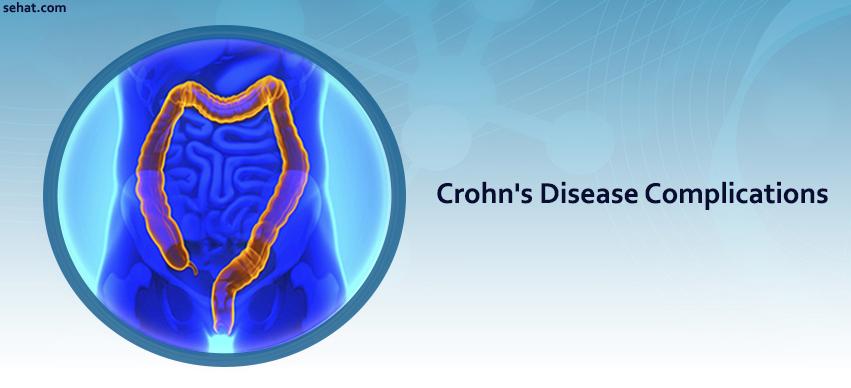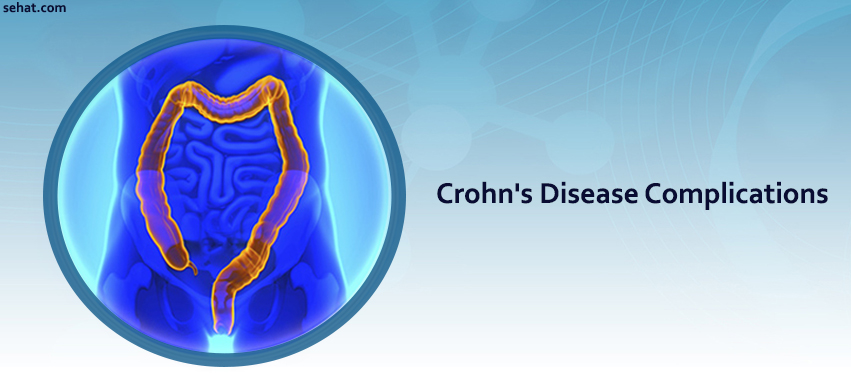
In the last few years the incidence of inflammatory bowel diseases (IBD), including ulcerative colitis and Crohn’s disease has increased in Asia including India though it was not as common before. If you thought Crohn’s disease was just an upset stomach, then think again. This disease affects various parts of the body and can create total and added intestinal problems that can affect any age group but is quite common among adults in their 20’s and 30’s.
To define, “Crohn’s disease (CD) is not a single disease but it includes a group of disorders with precise clinical and pathological features characterized by central, unequal, transmural, and, at times granulomatous swelling that primarily affects the gastrointestinal (GI) tract.â€
Crohn’s is a chronic condition and gets worse as time goes on and the disease progresses. This disease lasts for a very long time and not getting treatment on time could mean added complications. Since this disease is a group of disorders together the symptoms are many and can vary depending on how advanced the disease is and the condition of the person suffering from it.
Look at Some of the Symptoms of Crohn’s Disease
- Extreme diarrhea with blood, mucus, and pus in it
- Bleeding from the rectum
- Dizziness
- Soreness in and around the abdomen
- Constipation
- Sudden weight loss
- Moderate to high temperature
- Loss of hunger
- Swelling in the GI tract
- Swelling and scarring in the abdomen
- Pain in rectal area
- Pain in the joints
- Sore red bumps under the skin, which could indicate swelling outside the intestine as well.
When you Ignore the Symptoms Mentioned above it Can Lead to Further Crohn’s Disease Complications.
When the Skin Gets Affected:
- Blisters: These are generally found near the knee, elbow, feet and hands. Those who suffer from Crohn for a prolonged period are known to have blisters on their skin.
- Red Bumps: These small red bumps can be seen near the ankle, shin, arm and feet
- Skin Flaps: When the swelling reduces, it tends to form into skin flaps. They are often found near the anus and may trap the excreta, which often irritates the skin further.
- Fistula: Fistulae are outgrowths and found outside the body but inside the skin. In the case of Crohn’s Disease, pus, and fecal matter leak out of these fistulas.
- Vasculitis: In this case the blood vessels in the body become inflamed raising the skin and turning it red, often leading to ulcers.
Complications in the Intestinal Region
As the disease progresses, it affects the intestines more than just sporadic pain and discomfort. Here’s what happens
- Ulcer: Ulcers are basically open sores that are found in the anus, intestine and other areas. These ulcers are often a complication of the Crohn’s disease.
- Solidifying of Intestinal Walls: The swelling caused due to Crohn’s can make the intestinal walls thick and narrow, which stops the proper flow of food and waste through the body.
- Fistula: They are painful ulcers that fuse different parts of the intestine. At times these sores tend to tunnel into the bladder or the vagina.
- Fissures: These are basically small cracks or gashes that are found in the anus region. These cracks may cause severe pain in the rectum and bleeding during bowel activities.
- Abscesses: Abscesses, are boils with pus accumulated in them often inside the intestine, at times in other parts of the gastrointestinal tract and other tissues surrounding it. This pus can cause fever, excessive pain, tenderness and swelling in the tract.
Other Diseases that Cause Inflammation
Crohn’s is not the only disease to cause inflammation in the body, however, it is one of the diseases where those suffering can contract other inflammatory diseases also. Here are a few diseases that cause swelling.
- Arthritis: It is one disease that causes pain and swelling in the joints in the body. It is one of the most common issues people suffering from Crohn’s suffer from.
- Spinal Spondylitis: In this disease, you may suffer from swelling and pain in the spinal joints just like arthritis. However, spondylitis may also cause a swelling in the lungs, heart and the eyes.
- Psoriasis: When a person suffers from psoriasis the skin becomes irritated and scaly. Those suffering from Crohn’s already face a risk of contracting the disease that is 6 times higher than normal people.
People are often diagnosed when they are between the ages of 15 to 35, though anyone can suffer from Crohn’s disease. Yet the difficulties children suffer are more than the adults. A new research found that more than 10 percent of the new cases diagnosed for Crohn’s are discovered during childhood.
The Complications Children may Face Are
- Brain disorders: Those children suffering from Crohn’s tend to have diminished social skills and are more likely to suffer from bouts of depression.
- Underdeveloped growth: An interruption in the beginning of puberty as well as slow growth rate are effects Crohn’s has on children.
- Surgical treatment: At least one child among 3 children requires surgery in one form or another within five years of being diagnosed with Crohn’s.
This disease cannot be cured through medications or surgeries, which is why the person suffering may undergo healing therapies to encourage and maintain control over the symptoms, improve the quality of life to reduce the harmful effects and difficulties for both short-term and the long-term.
Doctors often prescribe anti-inflammatories for mild symptoms to reduce swelling in the intestine or antibiotics if the symptoms you have, range between mild to moderate. For severe symptoms, you may have to take corticosteroids, immunomodulatory medicines or biologics.
The first step of treatment if you are suffering from severe symptoms is to control the disease and treat its symptoms. After that, your doctor can plan further treatment to prevent further deterioration of the disease and keep you in remission. In a few cases for those who suffer from worse symptoms or serious complications are prescribed stronger medications or a mix of meds or surgery in a few cases.
Before you decide on a course of treatment you should always visit your doctor and understand the various options of treatment available and then pick the one that is best suited to your condition.
Sehat provides list of best Naturopathic Doctors in Chennai from which you can research and choose the right doctor for your condition.

